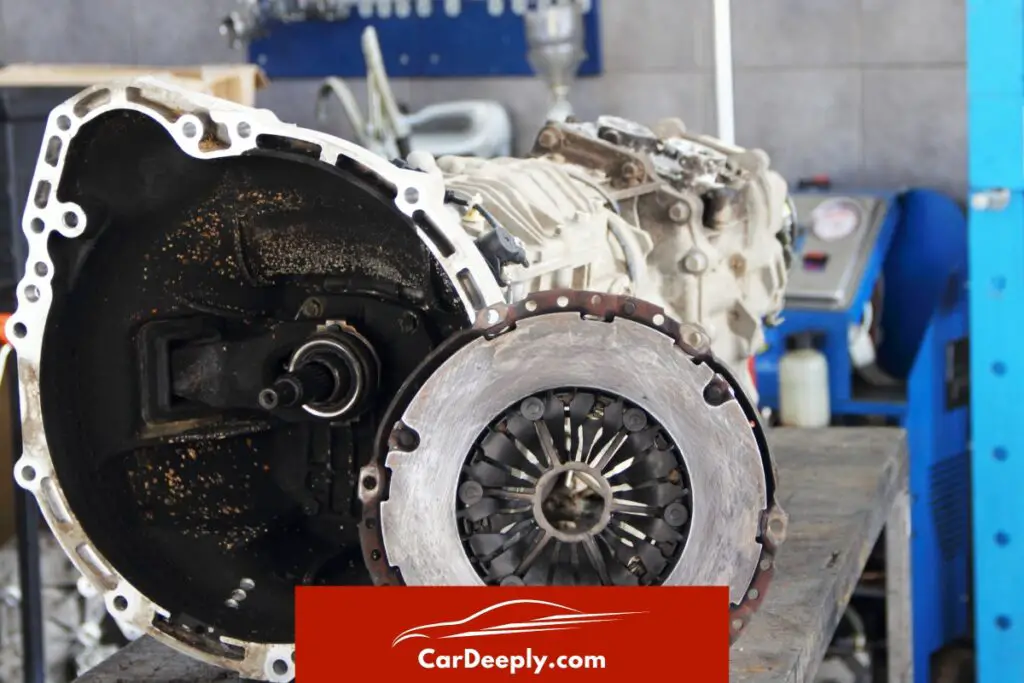Is it worth replacing a CVT transmission? This question often haunts car owners when they face transmission issues. This comprehensive guide gives you the insights to make an informed decision.
We’ll delve into the intricacies of CVT transmissions, their repair costs, and the factors to consider before replacing them. You’ll learn:
- The unique characteristics of CVT transmissions.
- The cost implications of repairing versus replacing.
- Practical tips on how to prolong the life of your CVT transmission.
By the end of this article, you’ll be equipped with the knowledge to make the best decision for your vehicle. Let’s dive in!
Advertising links are marked with *. We receive a small commission on sales, nothing changes for you.
Key Takeaways

- CVT transmissions provide smooth, efficient performance but can be costly to replace.
- Common CVT issues include overheating, slipping, and delayed drive engagement.
- Evaluating your vehicle’s worth before deciding on a costly CVT replacement.
- Alternatives to replacement include selling the car as-is or trading it in.
- The decision to replace a CVT transmission depends on various factors, including cost, vehicle worth, and personal financial situation.
Important Points to Consider
Before you decide to replace your CVT transmission, consider the following points:
Factor | Description |
|---|---|
Cost of Replacement | Replacing a CVT can be costly, often ranging between $3,000 and $5,000. |
Vehicle’s Worth | Use tools like Kelley Blue Book to determine if your car’s worth exceeds the repair cost. |
Age and Condition of Vehicle | Older vehicles might have other impending issues, leading to more repair costs. |
Resale Value | A new transmission could increase your car’s resale value if you plan to sell soon. |
Financial Situation | Consider your financial situation and whether you can afford the repair cost. |
Understanding CVT Transmissions
A Continuously Variable Transmission (CVT) is an automatic transmission that provides more useable power, better fuel economy, and a smoother driving experience than a traditional automatic transmission.
Unlike other transmission systems that use a set of fixed gears, CVT employs a pair of variable-width pulleys connected by a flexible belt.
This unique setup allows for infinite gear ratios, hence “continuously variable.”
The Pros and Cons of CVT Transmissions
Like any technology, CVT has its advantages and disadvantages. Conversely, CVTs are incredibly smooth, with no gear shifts interrupting acceleration. This makes for a more comfortable ride and leads to better fuel efficiency. CVTs are also generally lighter and simpler in construction, reducing the overall vehicle weight.
However, CVTs have their drawbacks. Some drivers find the constant drone and the lack of shift points unsettling. Moreover, CVTs can be expensive to repair or replace if they fail, which is a crucial factor to consider.
Common Problems with CVT Transmissions
CVTs are known for their reliability, but they can still suffer from common issues. These include:
- Overheating: CVTs tend to overheat when subjected to harsh driving conditions. Regular maintenance can help mitigate this issue.
- Slipping: A CVT might feel like it’s slipping when accelerating. This could be due to worn-out components or low transmission fluid.
- Delayed Drive Engagement: You might notice a delay between shifting the car into Drive and when the transmission engages. This is a common sign of a failing CVT.
Understanding these common problems can help you identify potential issues early and take appropriate action. In the next part, we’ll explore the cost of replacing a CVT transmission and whether it’s worth it.
Is It Worth Replacing a CVT Transmission?
There are several factors to consider Regarding whether replacing a CVT transmission is worth. Let’s delve into these aspects.
The Cost of Replacing a CVT Transmission
Replacing a CVT can be expensive, often between $3,000 and $5,000. This hefty price tag is due to the complexity of the technology and the labor-intensive process of replacement. However, the exact cost can vary depending on your vehicle’s make and model, the damage’s extent, and the repair shop’s rates.
Evaluating Your Vehicle’s Worth
Evaluating your vehicle’s worth is essential before you decide to replace your CVT transmission. If your car is older or has high mileage, the repair cost might exceed the vehicle’s value.
In such cases, investing in a new car might be more economical. Online tools like Kelley Blue Book can help determine your car’s worth.
Deciding If Your Vehicle Is Worth Fixing
When deciding whether to repair or replace your vehicle, consider the following factors:
- Age and Condition of the Vehicle: Older vehicles might have other impending issues that could lead to more repair costs.
- Resale Value: If you plan to sell your car soon, a new transmission could increase its value.
- Your Financial Situation: Consider whether you can afford the repair cost or if buying a new or used vehicle would be more feasible.
Alternatives to Replacing Your CVT Transmission
If replacing the transmission isn’t worth it, you have other options. You could sell the car as-is, trade it for a new vehicle, or even donate it to a charity for a tax deduction.
In conclusion, replacing a CVT transmission depends on various factors, including the replacement cost, the vehicle’s worth, and your financial situation. Considering these aspects, you can make an informed decision that suits your needs and budget.
Frequently Asked Questions
What are the signs of a failing CVT transmission?
A failing CVT transmission might show signs like slipping, overheating, or delayed drive engagement. Regular maintenance can help identify these issues early.
Can a CVT transmission be repaired instead of replaced?
Yes, in some cases, a CVT transmission can be repaired. However, the repair’s feasibility depends on the damage’s extent and cost-effectiveness compared to replacement.
How long does a CVT transmission typically last?
The lifespan of a CVT transmission varies depending on the vehicle model and maintenance. Nevertheless, proper care can last between 60,000 and 100,000 miles of CVT transmission.
Does a CVT transmission require special maintenance?
CVT transmissions require regular checks and fluid changes. Using CVT-specific transmission fluid is crucial to prolong the transmission’s life.
Are all modern cars equipped with CVT transmissions?
No, not all modern cars use CVT transmissions. While many manufacturers have adopted CVT for its efficiency benefits, others still use traditional automatic or manual transmissions.

Sebastian loves convertibles and drove a BMW 335i for a long time (325 hp is just a dream). Today, with two children, he is more concerned with SUVs and family-friendly vehicles. In addition to an Audi A4 Avant, he also drives a Cupra Formentor VZ – even as a family man, you can’t do without speed. Get to know Sebastian better and visit the About Us page.
Advertising links are marked with *. We receive a small commission on sales, nothing changes for you.
